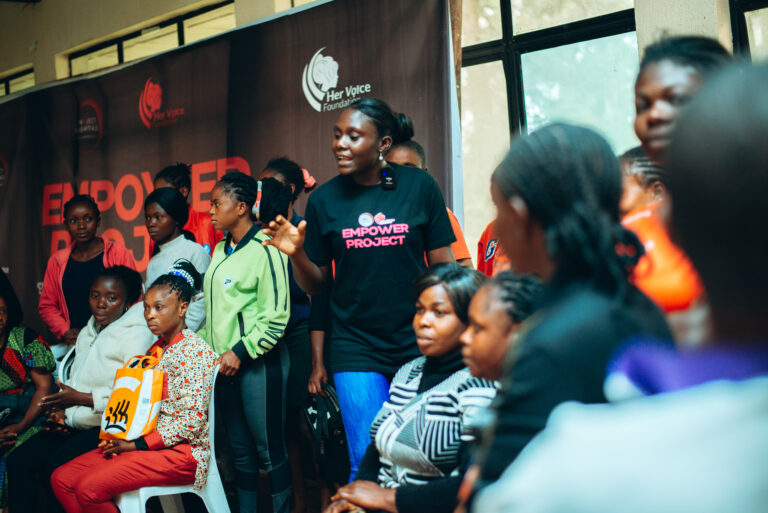As the world celebrates International Women’s Day this week with the theme Accelerate Action, it’s important to reflect on why resourcing women is not just a matter of equality, but a key driver of global development. Empowering women isn’t simply a moral imperative; it’s a strategic investment in building stronger economies, healthier societies, and more sustainable futures.
The Economic Argument: Empowering Women Boosts the Economy
A study by McKinsey Global Institute found that closing the gender gap in labor force participation could add $28 trillion to global GDP by 2025. This stark statistic illustrates that when women are given equal opportunities to participate in the economy, they bring about transformative change. In developing nations, where women often face systemic barriers to accessing resources, the potential for economic growth is immense.
Take, for example, the Grameen Bank in Bangladesh. Founded by Nobel laureate Muhammad Yunus, the bank’s microfinance model has helped millions of women access loans to start businesses, gain economic independence, and uplift their families. In many cases, these women reinvest in their communities, creating a ripple effect that drives local economies forward. According to the Grameen Foundation, for every $1 invested in a woman’s education, a return of $2.80 is generated for the local community.
The Social Impact: Resourcing Women Means Healthier Societies
When women are resourced—whether through education, healthcare access, or economic opportunities—they are better positioned to raise healthy, educated children who will, in turn, contribute to society’s long-term well-being. A UNICEF study found that women’s education has a direct impact on child health. Educated mothers are more likely to ensure their children receive proper nutrition, vaccinations, and healthcare. This reduces child mortality rates and improves the overall health of future generations.
Furthermore, in times of crisis, women often play critical roles in peacebuilding and conflict resolution. According to UN Women, when women are included in peace negotiations, the agreements are 35% more likely to last for at least 15 years. This is because women bring a unique perspective to the table, one focused on community, healing, and sustainable solutions.
Breaking Barriers: Examples of Women Resourcing Change
I stand as an example of a women who is resourcing change. Growing up amidst the challenges of money marriage, teenage pregnancy, and limited access to education, I witnessed firsthand the barriers that hold back so many young girls. Determined to break this cycle, I founded Her Voice Foundation to empower at-risk girls and teenage mothers. Through providing second-chance education, vocational training, and proactive advocacy, I’ve dedicated my work to equipping them with essential skills like literacy, numeracy, and entrepreneurship. My efforts aim not only to reclaim futures but also to inspire systemic change and challenge harmful cultural practices.
Another Example is Malala Yousafzai, a global advocate for girls’ education, is an inspiring example of how resourcing women leads to transformative change. After surviving a targeted attack for advocating for girls’ education in Pakistan, Malala went on to become the youngest-ever Nobel Peace Prize laureate. Through her Malala Fund, she works to increase access to education for girls around the world, empowering them to become the leaders of tomorrow.
Why Resourcing Women Matters: Facts and Figures
- Economic Growth: The World Economic Forum estimates that achieving gender equality could add up to $12 trillion to the global economy by 2025.
- Agricultural Impact: Women represent around 40% of the global agricultural labor force. However, with equal access to resources, agricultural output could increase by up to 30%, significantly reducing hunger and poverty.
- Long-term Societal Benefits: Educated women are proven to raise healthier families, contributing to improved community health and stability over generations.
The Way Forward
Investing in women is not a luxury—it is a necessity for building a fairer, more prosperous world. Practical steps include:
- Enhancing Access to Education: Ensuring girls and women have the educational opportunities they need to succeed.
- Promoting Financial Inclusion: Providing women with the financial tools necessary for independence and entrepreneurial success.
- Expanding Healthcare and Social Services: Prioritizing women’s health and well-being to create a healthier, more productive society.
- Creating Leadership Opportunities: Ensuring women have a voice at the decision-making table in all sectors of society.
As we honor the achievements of trailblazers like Malala Yousafzai and Favour Abatang, it becomes clear that resourcing women is a fundamental strategy for sustainable development. Their stories are not just inspirational—they are proof that when women are given the resources and support they deserve, entire societies benefit.
This International Women’s Day, let us reaffirm our commitment to resourcing women. By investing in their education, health, and economic empowerment, we’re not only uplifting individual lives—we’re sowing the seeds for a brighter, more equitable future for all.
For more articles, visit our blog.

